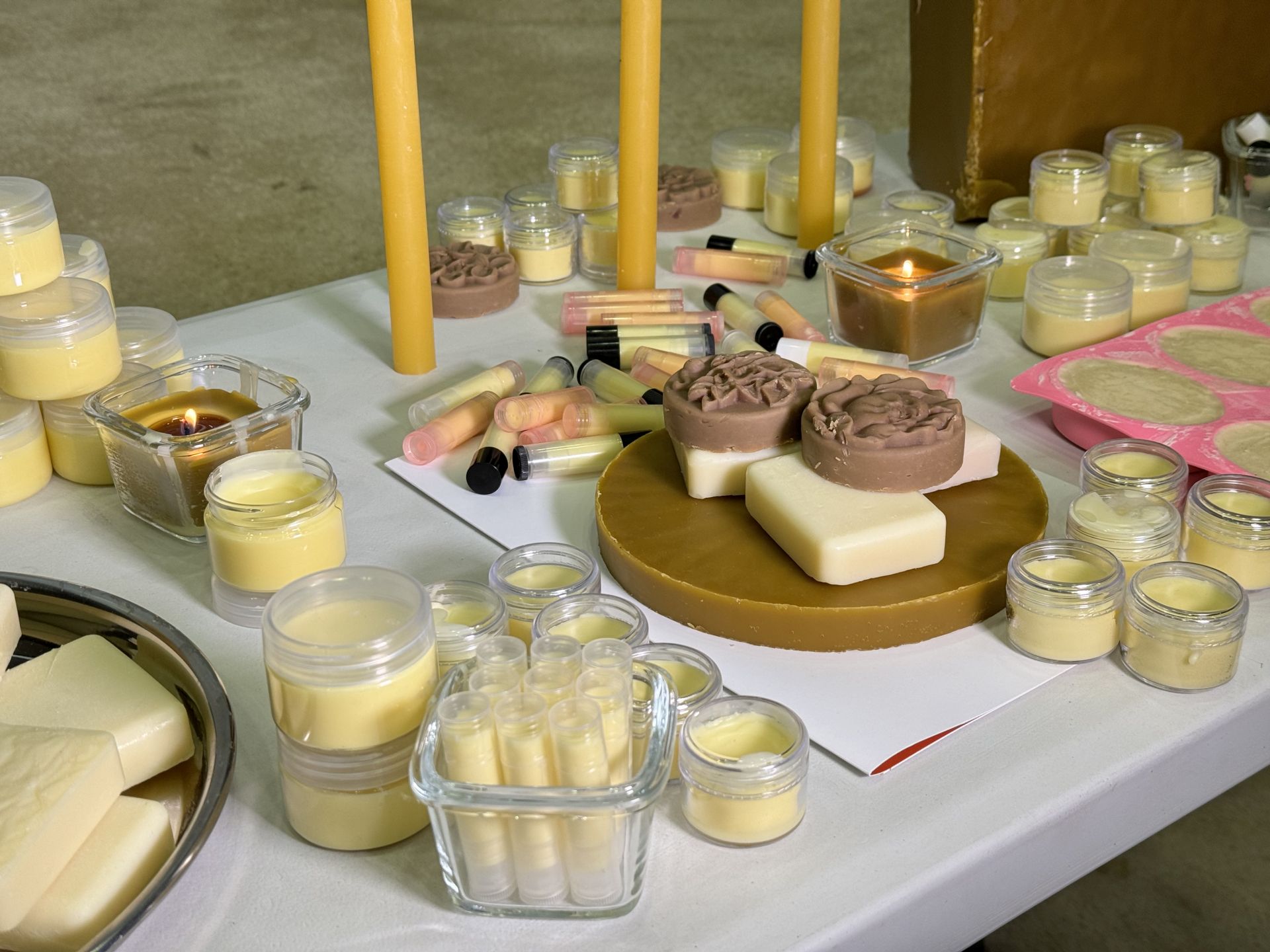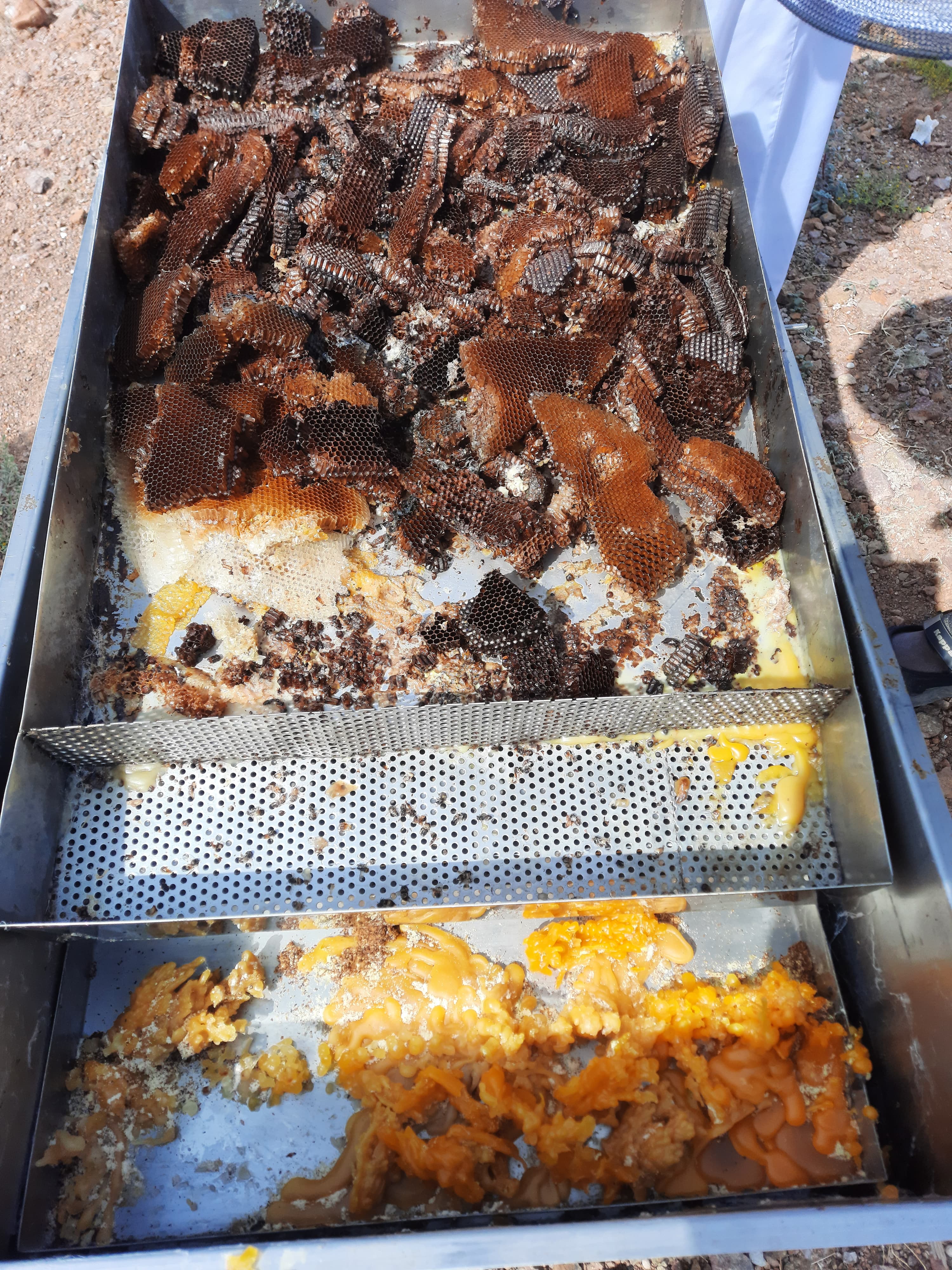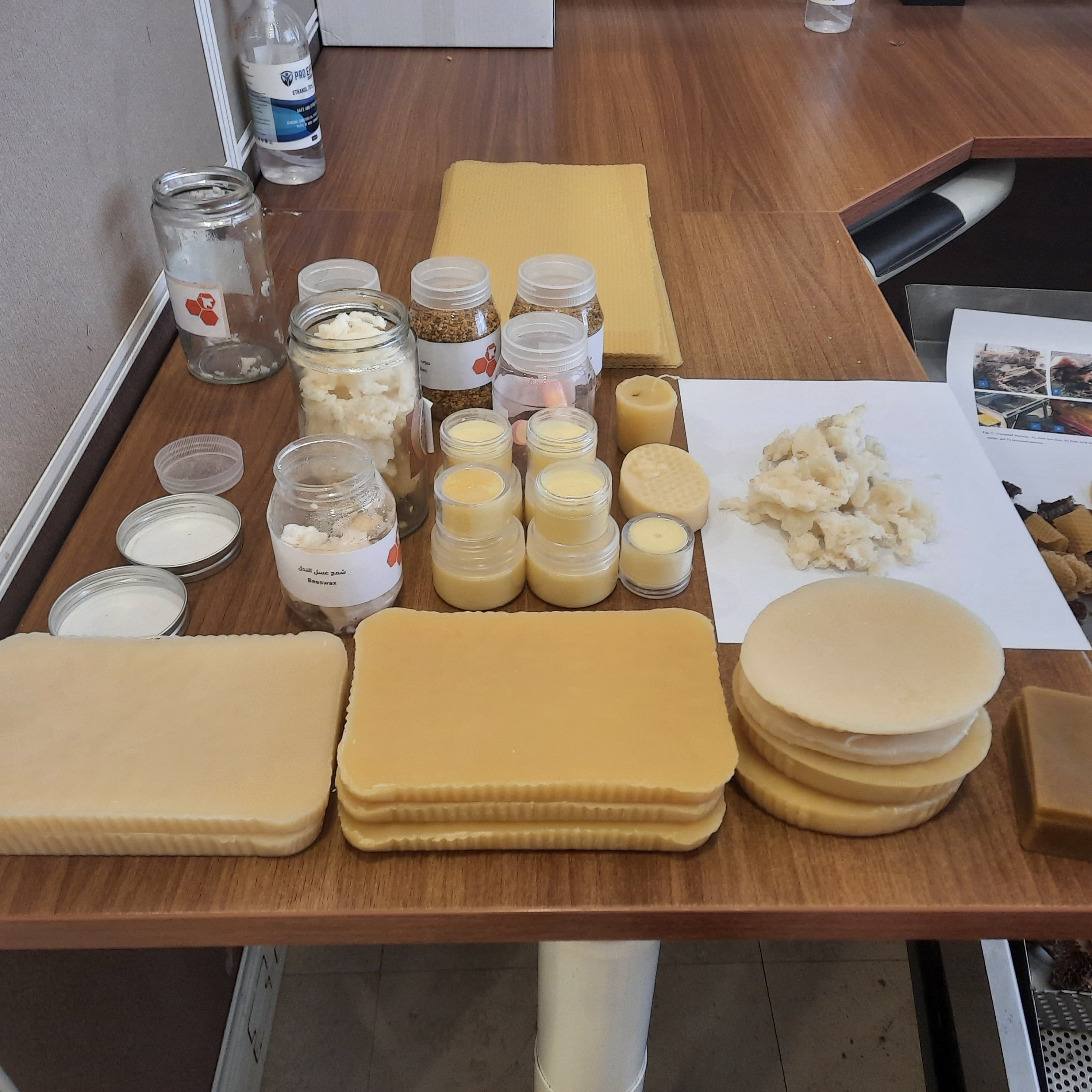
Saudi beekeepers turn ‘waste’ into ‘wealth’
20/05/2025
RIYADH, Beeswax, one of the most valuable bee products, has a multitude of uses across industries such as cosmetics, pharmaceuticals, candles, textiles and more. Once refined, beeswax remains stable and inert for many years, making it a highly sought-after resource. Despite this, and the extensive beekeeping activities in the Kingdom of Saudi Arabia, many beekeepers are not fully leveraging the potential of beeswax.
Traditionally, beekeepers focus primarily on honey production, often discarding significant quantities of beeswax obtained from both traditional and modern hives—estimated at 300 tonnes per annum. This large volume of valuable ‘wasting beeswax’ results not only in lost income but can also pose bees health issues, as the discarded beeswax may foster the harbouring and multiplication of honeybee pests such as wax moths, which threaten colonies within apiaries.
Due to a lack of awareness and suitable technology for utilising available natural beeswax, many beekeepers use imported paraffin-based beeswax foundation sheets for their modern hives rather than utilising locally produced natural beeswax. This practice is less sustainable and often not recommended.

Introduction of solar beeswax extraction
To address these challenges, under the ongoing Sustainable Rural Agricultural Development Programme (REEF) of the Ministry of Environment, Water and Agriculture (MEWA), in collaboration with the Food and Agriculture Organization of the United Nations (FAO), solar-powered crude beeswax extractor has been introduced and pilot tested at six demonstration sites in Asir, Al-Baha and Al-Madinah regions and promoted to more than 150 beekeepers and women entrepreneurs through organized demonstration sessions. The technology was received very positively by the beekeepers and women during these demonstrations.
This portable device aligns with migratory beekeeping practices prevalent in the country, especially in remote areas where electricity is often unavailable. The device harnesses solar energy to rapidly melt and purify the crude beeswax, enabling beekeepers to recover high-quality beeswax efficiently, without reliance on electricity or extensive labour. The equipment, not only extracts beeswax but also naturally bleaches it using solar ultraviolet rays, producing a bright, cosmetic-grade wax suitable for a variety of high-value products. As well as the demonstration sessions, training workshops have been organized to familiarize local beekeepers and women entrepreneurs with this technology, opening new avenues for income generation.
“Solar beeswax extraction demonstrates how sustainable technology can transform local resources into valuable economic assets. By empowering beekeepers and women entrepreneurs, we are helping to build resilient and environmentally friendly rural economies,” said Adel Mohammed Almutlaq, Deputy Secretary-General, Sustainable Agricultural Rural Development Programme (REEF) of the MEWA.

Empowering communities and promoting sustainability
“The large-scale adoption of this eco-friendly technology enables the sustainability of Saudi Arabia’s beekeeping industry, reduce waste, and generate new income streams, paving the way for a more resilient and prosperous rural economy,” said Dr Nizar Haddad, FAO Saudi Arabia Programme Director.
By utilising this solar extraction technology, beekeepers can reduce reliance on imported beeswax and maximize the use of their natural resources. The REEF and the FAO Technical Cooperation Programme have also trained rural women entrepreneurs on how to utilize the pure beeswax obtained through solar extraction into a variety of value-added body care products, such as hand and face creams, body lotions, lip balms as well as other products like soaps, candles and many more. The refined beeswax enables the productions of high-quality and market-ready goods, contribute to boosting local economies and supporting women entrepreneurs.
